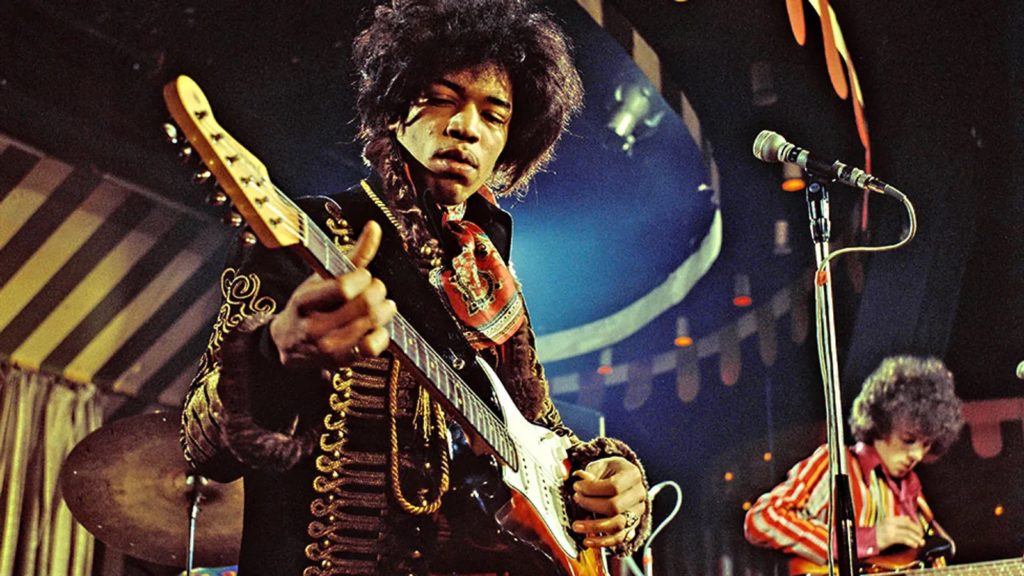
Few guitarists are treated with as much reverence as Jimi Hendrix. But myths about his talent do him a disservice, argues Greg Kot.
Fifty years ago today, one of the most important and influential musicians of the 21st Century, Jimi Hendrix, died. All Is by My Side, the John Ridley-directed, loosely biographical movie about Jimi Hendrix’s early life, claims to tell the story of the guitarist and musical shape-shifter as he was on the cusp of becoming an international star. The film focuses on the 1966-67 years, when Hendrix came to London and was ‘discovered’ by Britain’s rock royalty, including Paul McCartney, Eric Clapton and Jeff Beck.
This article was originally published in September 2014.
Amid the endless retellings of this tale, there is a sense that Hendrix was a Halley’s Comet of rock guitar, a once-in-a-lifetime game-changer who arrived fully formed in London, long before his ground-breaking 1967 debut album, Are You Experienced? To hear the history books tell it, that album’s arrival was akin to tectonic plates shifting, the earth moving beneath a culture’s feet. We are told that there’s guitar before Hendrix, and there’s guitar after Hendrix. Few rock instrumentalists get treated so reverently, and fewer still created their own aura and era so definitively for all time. It didn’t hurt that Hendrix died in 1970, only three years after his arrival as a seemingly instant rock star.

All this from a man who spoke softly and did not appear to be outwardly driven by what the music business had to offer. Yet on Voodoo Chile, one of his most esteemed tracks, Hendrix channels some of the high-testosterone mythmaking of one of his idols, Muddy Waters, when he declares, “Well the night I was born/Lord I swear the moon turned a fire red.”
Hendrix was less an instant sensation than a student who, through intensive training and innate talent, transcended his many teachers
I’m pretty sure the moon didn’t turn a fire red on 27 November 1942, and it’s certain Hendrix knew his mythical powers weren’t created by cosmic events but by not-so-mythical virtues such as intense listening, astute taste and heavy road work. Call it a combination of blood, sweat and brains, but Hendrix was less an instant sensation than a student who, through intensive training and innate talent, transcended his many teachers. All those who buy into the Halley’s Comet myth do Hendrix and his work ethic a disservice.
‘A little science fiction’
Like The Beatles before him, who were hailed as rock ‘n’ roll saviours, Hendrix thought of himself as more of a skilful synthesist of what had come before than a whole new entity. He always said he was channelling the blues into his own thing with “a little science fiction”. In interviews, he was generous about name-checking his inspirations, and they were numerous.
World Opinions Music – BBC Music




 World Opinion | Alternative Média زوايا ميادين | صوت من لا صوت له Débats De Société, Questions, Opinions et Tribunes.. La Voix Des Sans-Voix | Alternative Média
World Opinion | Alternative Média زوايا ميادين | صوت من لا صوت له Débats De Société, Questions, Opinions et Tribunes.. La Voix Des Sans-Voix | Alternative Média





